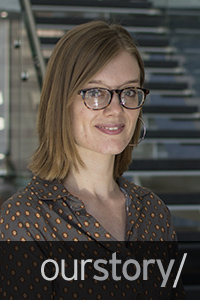-
About
ExploreUp a level (this gets replaced in JS)
-
Strategic Plan
Explore
-
College Overview
Explore
- Dean's Lecture Series
- Environmental Health Sciences
-
Diversity, Equity and Inclusion
Explore
-
Get Involved
Explore
-
People
Explore
-
Achievements
Explore
- Administrative Offices
- Discover HHD
- College News and Events
- Commencement
- Contact Us
-
Strategic Plan
-
Undergraduate
ExploreUp a level (this gets replaced in JS)
-
Getting Started
Explore
-
Student Support
Explore
-
Get Involved
Explore
-
Gain Experience
Explore
-
Careers
Explore
-
Get Connected
Explore
-
Policies and Procedures
Explore
- Summer Session
- Discover HHD
- Visit and Apply
- New Student Orientation Program (NSO)
- Undergraduate News
- Commencement
- Contact Us
-
Getting Started
-
Graduate
ExploreUp a level (this gets replaced in JS)
-
Getting Started
Explore
-
Student Support
Explore
-
Student Profiles
Explore
-
Get Involved
Explore
-
Get Connected
Explore
-
Gain Experience
Explore
- Environmental Health Sciences
-
Diversity, Equity and Inclusion
Explore
-
Commencement
Explore
- Discover HHD
- Admissions
- Contact
-
Getting Started
-
Online & Outreach
ExploreUp a level (this gets replaced in JS)
-
Online Degrees and Programs
Explore
-
Outreach Programs
Explore
-
Short-term Courses
Explore
-
Teaching Support
Explore
- Contact Us
-
Online Degrees and Programs
-
Research
ExploreUp a level (this gets replaced in JS)
-
COVID-19 Response
Explore
-
Researcher Resources
Explore
-
Ongoing Research
Explore
-
Research Units
Explore
-
Diversity, Equity and Inclusion
Explore
- Environmental Health Sciences
-
Get Involved
Explore
-
Stay Connected
Explore
- Discover HHD Research
- Research News and Events
- Contacts
-
COVID-19 Response
-
Alumni
ExploreUp a level (this gets replaced in JS)
-
Become a Member
Explore
-
Resources for Alumni
Explore
-
Building Diversity and Inclusion
Explore
-
Get Involved
Explore
-
Meet Our Volunteer Leaders
Explore
-
Stay Connected
Explore
-
Alumni Achievements
Explore
-
Parents and Family
Explore
-
Donate
Explore
- Alumni News
- Attend an Alumni Event
- Give to HHD
- Update Your Contact Information
- Contact Us
-
Become a Member
-
Contact
Explore
-
Departments
Explore
-
Research Centers
Explore
-
Central Administration
Explore
-
Training and Support
Explore
- Contacts/Directory
Our Story/Danica Slavish

August 2016
After receiving her undergraduate degree in psychology with a minor biology from Beloit College in Wisconsin, Danica Slavish was on the search for a Ph.D. program that would allow her to study stress and health from an interdisciplinary perspective. She also wanted a program in which she could pursue her own research projects while still contributing to the cutting-edge work in the field of health psychology.
Her answer was Biobehavioral Health at Penn State.
More than 4,500 Penn State students are enrolled in the College of Health and Human Development (HHD) studying a wide-array of fields, each committed to the concept of improving the quality of life for others. Slavish, who found a home in the Department of Biobehavioral Health (BBH), is one of those HHD students, and this is her story.
Slavish is a fifth-year doctoral candidate in BBH. What first attracted her to Penn State in 2012 was the department’s unique interdisciplinary approach, offering courses and research initiatives that incorporate fields of psychology, biology, and public health.
“Many of the other graduate programs I was considering were more exclusively focused on either biology or psychology,” Slavish said. “After talking with my (now adviser) Dr. Jennifer Graham-Engeland, I could tell BBH was exactly what I was searching for—a place where I wouldn’t have to restrict my research to one field.”
Graham-Engeland, associate professor of biobehavioral health, is also director of the Stress and Health Laboratory where she, Slavish, and other lab members are currently studying the effects of psychological stress on a variety of physical health outcomes.
Slavish’s specific research focuses on understanding why some people are able to overcome stress in their daily lives, and why others are less resilient. Better understanding individual differences in stress responses could help researchers develop targeted interventions.
“If we can identify those factors, we can create stress management initiatives tailored to individuals, increasing the chances of promoting health” Slavish said.
The work is important because, over time, repeated stress can predict a variety of health issues, such as impaired sleep quality and systemic inflammation.
Slavish primarily studies minor daily stressors, such as arguments with a spouse or work–related demands.
“Those who use more negative strategies to cope with daily stress, such as rumination—repetitively thinking about upsetting experiences—can have impaired sleep quality that night. Over time, sleep issues can lead to a number of poor health outcomes, such as increased risk for cardiometabolic disease,” Slavish said.
“My goal is to promote resilience in the face of daily stress in order to improve individuals’ everyday quality of life,” according to Slavish. “The diverse research initiatives here at Penn State, including those in the Stress and Health Lab, have allowed me to explore these concepts from a variety of unique angles.”
After her graduation in 2017, she plans to apply to post-doctoral positions to receive further training in sleep measurement and longitudinal data analysis. Slavish credits Penn State for helping pave the path for further research.
“My work here at Penn State has been possible because of the vast amount of resources available, including opportunities for student research funding and generous alumni with whom I’ve had the chance to form relationships,” Slavish said.
In addition to BBH, there are a variety of areas for students to study within HHD through the Departments of Communication Sciences and Disorders, Health Policy and Administration, Human Development and Family Studies, Kinesiology, Nutritional Sciences, Recreation, Park, and Tourism Management, and the School of Hospitality Management.
